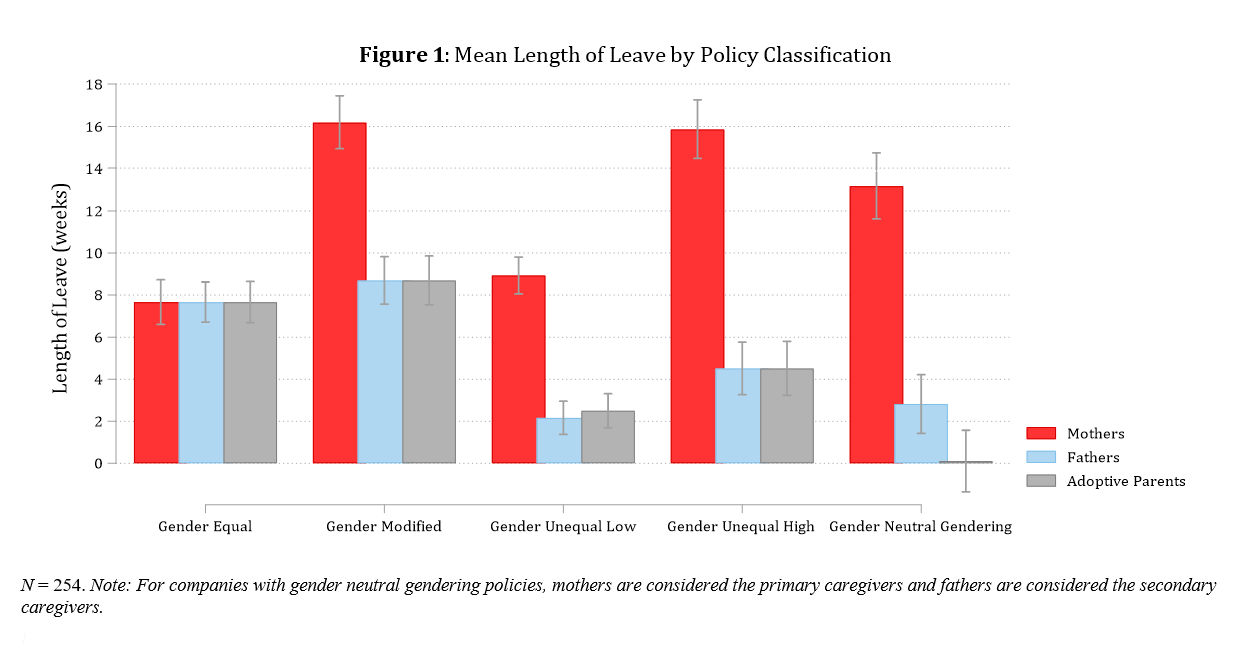MUNCIE, Indiana – Parental leave policies among the of majority Fortune 500 companies are gender-biased, providing women with more parental leave than their male counterparts, and these policies likely impede gender equality in hiring and promotions, says a new study from Ball State University.
Q2 2020 hedge fund letters, conferences and more
Paid Parental Leave Policies
“Gendered Parental Leave Policies among Fortune 500 Companies” finds that 72% of Fortune 500 companies have paid parental leave policies but fathers are often considered secondary caregivers. Half of all paid parental leave policies provide at least twice as much time to women than men.
The study, which is the first systematic examination of parental leave policies among major American corporations, will soon be published in the peer-reviewed journal, Community, Work & Family.
“These policies are clearly gender biased, and some are likely legally noncompliant, and could put employers at risk of a discrimination lawsuit,” said Richard Petts, a Ball State sociology professor who co-authored the paper with Gayle Kaufman, a sociology professor at Davidson College. “Overall, we see that companies largely view fathers as secondary parents who need less time to care for their new children.”
To analyze the data, researchers developed a classification of leave policies, based on how policies differ for mothers and fathers: gender equal (equal periods of leave to mothers and fathers), gender modified (equal leave of six or more weeks with an additional six to eight weeks for mothers), gender unequal (mothers offered two or more times longer leave than fathers), and gender-neutral gendering (policies that offer primary and secondary caregiver leave).
Additional Findings
The study also found:
- One third of all companies offer at least twice as much leave to mothers than fathers.
- Only 17% of companies offer equal time to mothers and fathers.
- 10% of all companies have policies that provide substantially more leave to mothers and are likely legally noncompliant with discrimination laws.
- 8% of companies reinforce gender stereotypes implicitly.
“We also find that larger companies, technology companies, and firms headquartered in a state that offers paid family leave are all more likely to offer paid parental leave,” said Petts. “Overall, most companies have policies that reinforce existing gender stereotypes that assume women are primary caregivers.”
He noted that parental leave policies do more than provide parents an opportunity to care for their children.
“These regulations also create norms about good motherhood and good fatherhood,” he said. “Better leave policies have the potential to increase men’s time in domestic work and child care as well as promote gender equality at work and home.”
“Policies clearly labeled for fathers may be most effective in encouraging men’s use of parental leave. Fathers who take longer leaves are more engaged in both caretaking and developmental activities and provide more relationship support to their partners and better co-parenting quality than those who do not take leave.”
All employers should adopt gender equal parental leave policies, said Petts, who has become one of the nation’s leading experts on parental leave with a focus on the role of fathers within families and as well as the impact of parenthood on men’s lives.
His current research focuses on the patterns, predictors, and consequences of paternity leave-taking in the U.S. and the potential benefits of paternity leave.
About Ball State
Founded in 1918 and located in Muncie, Ball State University is one of Indiana’s premier universities and an economic driver for the state.
Follow Ball State University:
Website: www.bsu.edu
Ball State Magazine: https://magazine.bsu.edu/






